Susan Graham
出生 : 1960-07-23, Roswell, New Mexico, USA
略歴
Susan Graham (born July 23, 1960, Roswell, New Mexico) is an American mezzo-soprano.
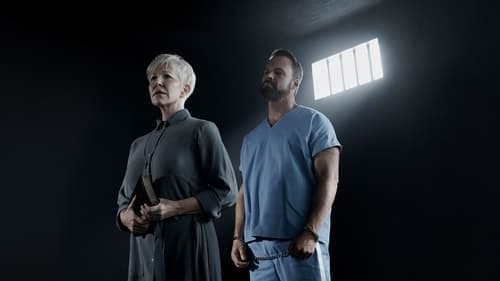
Mrs. Patrick de Rocher
American composer Jake Heggie’s compelling masterpiece, the most widely performed new opera of the last 20 years, arrives in cinemas in a haunting new production by Ivo van Hove. Based on Sister Helen Prejean’s memoir about her fight for the soul of a condemned murderer, Dead Man Walking matches the high drama of its subject with Heggie’s beautiful and poignant music and a brilliant libretto by Tony and Emmy Award–winner Terrence McNally. Met Music Director Yannick Nézet-Séguin takes the podium, with mezzo-soprano Joyce DiDonato starring as Sister Helen. The outstanding cast also features bass-baritone Ryan McKinny as the death-row inmate Joseph De Rocher, soprano Latonia Moore as Sister Rose, and legendary mezzo-soprano Susan Graham—who sang Helen Prejean in the opera’s 2000 premiere—as De Rocher’s mother.

In honor of Leonard Bernstein’s 100th birthday, Tanglewood—the famed summer home of the Boston Symphony Orchestra—dedicated its entire 2018 season to the iconic composer, conductor, performer, educator and humanitarian. The festivities culminated on Bernstein’s centennial birthday on August 25, 2018, in a special celebrity-studded gala concert. Directed for the stage by James Darrah, The Bernstein Centennial Celebration at Tanglewood illuminates the breadth of Bernstein’s incredible life and career, which inspired generations of music lovers around the globe – from his talent as a composer to his generosity in mentoring other composers and musicians, his inimitable role as a driving musical force at Tanglewood for over 50 years and more.
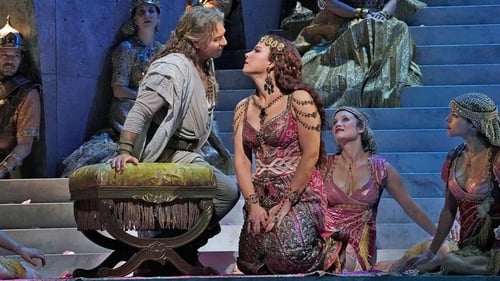
Self - Host
A towering biblical epic, Saint-Saëns’s operatic take on the story of Samson and Delilah has many of the hallmarks of grand opera—show-stopping vocal displays, thrilling choruses, and an engrossing plot set against a sweeping, pseudo-historical backdrop. It’s fitting, then, that Samson et Dalila has been chosen to celebrate the opening of the Met’s season four times in the company’s history, including when Darko Tresnjak’s bold new production premiered on the first night of the 2018–19 season. A few weeks later, the opera was shown as part of the Met’s series of live cinema transmissions, featuring an exceptional cast. Tenor Roberto Alagna was the heroic Samson, who ultimately falls victim to the seductive power of Dalila—the captivating mezzo-soprano Elīna Garanča. Bass-baritone Laurent Naouri sang the sinister High Priest of Dagon, with conductor Sir Mark Elder on the podium.
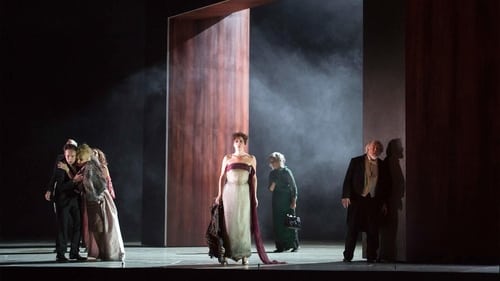
Self - Host
After the acclaimed Met premiere of Thomas Adès's "The Tempest" in 2012, the composer returned with another masterpiece, this time inspired by filmmaker Luis Buñuel's seminal surrealist classic "El Ángel Exterminador", during the 2017–18 season. As the opera opens, a group of elegant socialites gather for a lavish dinner party, but when it is time to leave for the night, no one is able to escape. Soon, their behavior becomes increasingly erratic and savage. The large ensemble cast tackles both the vocal and dramatic demands of Adès's opera with one riveting performance after another. Tom Cairns, who also penned the work's libretto, directs an engrossing and inventive production, using a towering wooden archway to trap the characters onstage. And Adès himself takes the podium to conduct the frenzied score, which features a host of unconventional instruments, including the eerie electronic ondes Martenot.
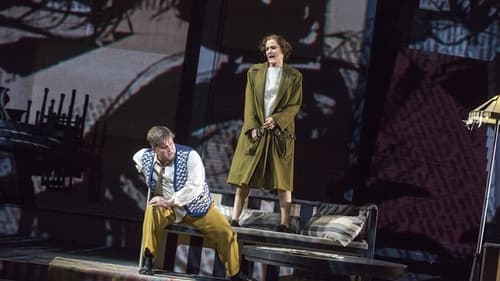
Countess Geschwitz
William Kentridge’s multi-layered production of Berg’s masterpiece stars charismatic soprano Marlis Petersen in the title role—the enigmatic and alluring woman who is equal parts femme fatale, innocent girl, and abused victim. The men around her, whose lives she forever alters, are Johan Reuter as newspaper publisher Dr. Schön; Daniel Brenna as his composer son, Alwa; Paul Groves as the Painter; and Franz Grundheber as Schigolch. Susan Graham sings Countess Geschwitz, and Lothar Koenigs conducts Berg’s landmark score.

Countess Geschwitz
William Kentridge’s multi-layered production of Berg’s masterpiece stars charismatic soprano Marlis Petersen in the title role—the enigmatic and alluring woman who is equal parts femme fatale, innocent girl, and abused victim. The men around her, whose lives she forever alters, are Johan Reuter as newspaper publisher Dr. Schön; Daniel Brenna as his composer son, Alwa; Paul Groves as the Painter; and Franz Grundheber as Schigolch. Susan Graham sings Countess Geschwitz, and Lothar Koenigs conducts Berg’s landmark score.
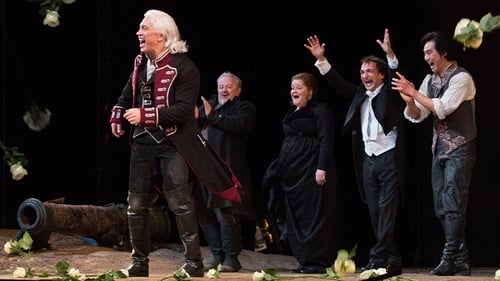
Self - Host
Soprano Anna Netrebko appears in her highly anticipated Met role debut as Leonora, the tortured heroine who sacrifices her own life for the love of the Gypsy troubadour. Dmitri Hvorostovsky sings Count di Luna, Yonghoon Lee is Manrico in his Met role debut as the title character, Dolora Zajick sings her signature role of the gypsy Azucena, and Štefan Kocán is Ferrando. Marco Armiliato conducts Sir David McVicar’s Goya-inspired production.

Didon
Witness the fall of Troy and the rise of an even greater nation in Hector Berlioz’s monumental five-part epic The Trojans. Opera legend Susan Graham, a master of the French opera repertoire, leads the cast as the lovesick queen Dido, who welcomes the Trojan refugees to her shores—only to have her heart broken by one of their heroes.
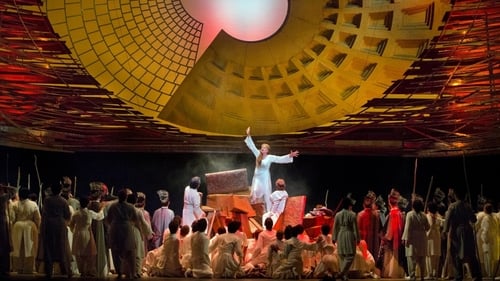
Dido
Berlioz’s epic masterpiece retells the magnificent saga of the aftermath of the Trojan War and the exploits of Aeneas. Rising tenor Bryan Hymel, in his Met debut, stars as the hero charged by the gods with the founding of the city of Rome. Susan Graham is Dido, Queen of Carthage, who becomes Aeneas’s lover, and Deborah Voigt sings Cassandra, the Trojan princess whose warnings about the impending destruction of Troy go unheeded. Francesca Zambello’s atmospheric production, featuring choreography by Doug Varone, is led by Met Principal Conductor Fabio Luisi.
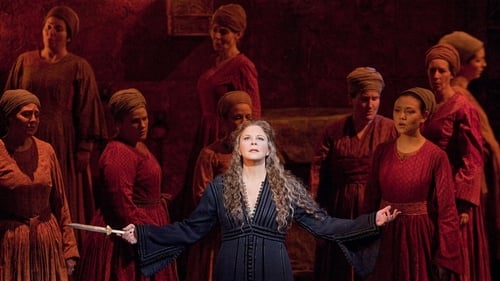
Iphigénie
Gluck’s gripping adaptation of the ancient Greek myth is vividly brought to life by a stellar cast in Stephen Wadsworth’s atmospheric production. Oreste is driven by the Furies to atone for killing his mother Clytemnestre. When he and his companion Pylade are shipwrecked on the island of Tauride, the king Thoas demands they be sacrificed. At the center of the drama is Iphigénie, Oreste’s long-lost sister. Forced to live among her enemies, she holds the lives of the captives in her hands—unaware that one of them is her brother. (Iphigénie en Tauride is performed in an adaptation of the 1779 Paris version edited by Gerhard Croll, by arrangement with Bärenreiter.)

Self - Host
Donizetti’s timeless comedy shines in Otto Schenk’s enchanting production, conducted by James Levine and featuring a remarkable cast. The incomparable Anna Netrebko is Norina, the young widow beloved by Ernesto (a suave Matthew Polenzani), who is about to be disinherited by his miserly uncle, Don Pasquale (John Del Carlo). It takes the clever scheming of Dr. Malatesta (Mariusz Kwiecien) to set things right and to teach the old curmudgeon a lesson—fits of temper, mistaken identities, and all kinds of comic confusion included.
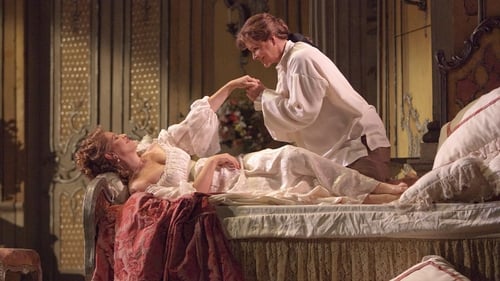
Octavian
This production of Strauss’s most sumptuous work by director Nathaniel Merrill and designer Robert O’Hearn is almost as beloved as the opera itself. It perfectly captures the glittering never-land of rococco Vienna the way the Viennese—and the rest of the world—wish it had been, and it’s the ideal setting for an adult comedy of love and errors. Susan Graham is the aristocratic young Octavian, torn between two women: Renée Fleming as the Marschallin, the mature woman who understands that one day Octavian must leave her; and Christine Schäfer as Sophie, the young girl who unexpectedly captures his heart. Kristinn Sigmundsson is the lecherous Baron Ochs who sets the whirling plot in motion, and Edo de Waart conducts.

Self - Host
Puccini’s musical thriller of lust, murder, and politics is one of the most dramatically riveting operas in the repertoire. Luc Bondy’s production, with sets by Richard Peduzzi and costumes by Academy Award-winning designer Milena Canonero, opened the Met’s 2009–10 season. Karita Mattila stars as the beautiful and dangerously impulsive singer Floria Tosca. Marcelo Álvarez is her lover, the painter Cavaradossi, a political enemy of the powerful chief of police, Scarpia (George Gagnidze), who wants Tosca for himself.
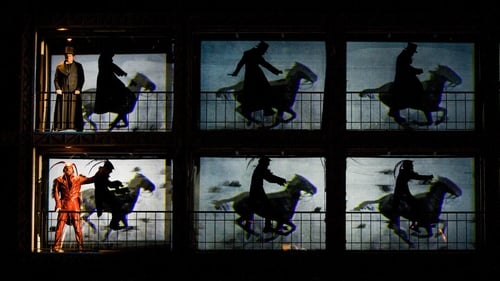
Marguerite / Self - Host
Radiant mezzo-soprano Susan Graham and dashing Italian tenor Marcello Giordani are unlucky lovers in La Damnation de Faust, Hector Berlioz’s classic take on dancing with the devil.
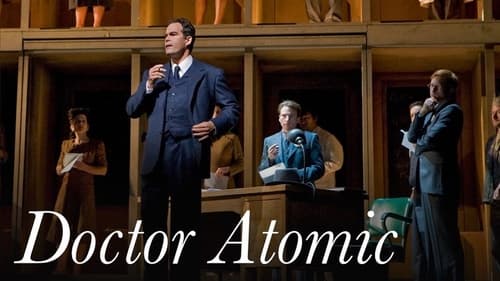
Self - Host
John Adams’s mesmerizing score, in the powerful production of Penny Woolcock, tells the story of one of the pivotal moments in human history—the creation of the atomic bomb. Conducted by Alan Gilbert in his Met debut, this gripping opera presents the human face of the scientists, military men, and others who were involved in the project, as they wrestled with the implications of their work. Baritone Gerald Finley gives a powerful star turn in the title role as the brilliant J. Robert Oppenheimer.
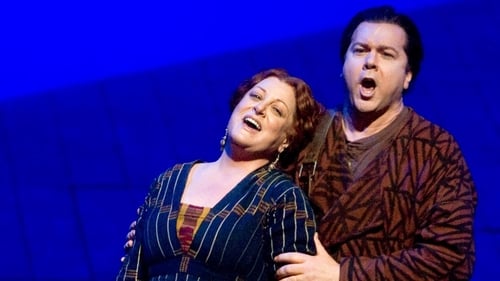
Self - Host
James Levine’s love for this monumental opera shimmers throughout this exciting performance. It was an afternoon to remember: Met favorite Deborah Voigt singing her first run as the proud Irish princess opposite tenor Robert Dean Smith—making an astonishing Met debut in front of a live worldwide movie-theater audience. Michelle DeYoung was a sisterly Brangäne and Matti Salminen an imposing King Marke.
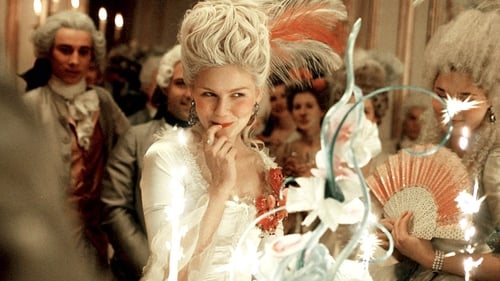
Orphée et Eurydice Soloist
有名な悲劇の王妃マリー・アントワネットの物語を、1人の女性の成長期としてとらえた宮廷絵巻。幼くして故郷を離れ、異郷フランスの王室で必死に生きた女性の激動の人生を丁寧に物語る。監督は『ロスト・イン・トランスレーション』のソフィア・コッポラ。『スパイダーマン』シリーズのキルステン・ダンストが孤独を抱えて生きる女性を愛くるしく演じている。実際のヴェルサイユ宮殿で撮影された豪華な調度品や衣装の数々は必見。

Mezzo-Soprano
The Berlin Philharmonic Orchestra’s annual summer concert at the Waldbühne in Berlin is legendary. The Millennium concert, recorded live on 25 June 2000, gathered more than 22.000 people in one of the most appealing outdoor amphitheaters in Europe for one of the most popular classical music concerts in the world. Kent Nagano named his program of popular and rather unusual music from the 20th century “Rhythm and Dance”. It turned out to be an inspiring combination of classical pieces, show tunes, pops, and Far Eastern music, all brought together in a tasty musical stew and rightly labelled as one of the most exciting programmes ever performed at the Waldbühne. It featured Gershwin classics with an outstanding performance by the American mezzo soprano Susan Graham, music by Ravel and the soundtrack to the successful Chinese film “Farewell My Concubine.”

Sesto
Directed by Ursel Hermann, this 2005 production of Mozart's last opera stars a remarkable cast with Susan Graham in the role of Sesto, Christoph Prégardien giving life to Tito and Catherine Naglestad embodying the ambitious Vitellia. Premiered in September 1791 for the coronation of Leopold II, King of Bohemia, La Clemenza di Tito celebrates the figure of the merciful sovereign

Dido
This epic opera follows Virgil, beginning as the Greeks appear to have ceded the field after ten years of the Trojan War. Cassandra tries to warn of the terrible fate to come, but fate is set and Troy falls. The first two acts cover this tragic end, then the flight of survivors to Carthage and events at Carthage continue in acts 3 - 5, culminating in the further voyage for Italy and Rome. This is Virgil's classic epic, in operatic form, in about a three and a half hour performance from French Opera.

Meg Page
It is to composer and librettist Arrigo Boito and his constant pestering of the octogenarian Verdi that there remained within him one last great comedy fighting to get out that we owe this absolute miracle of an opera. Produced in 1893 as Verdi turned 80 there is much in this masterpiece that can be identified as a modernist neoclassical work. The use of short motifs instead of long arioso melodic lines, the spry and reduced orchestral textures and the lack of a single 'stand and deliver' dramatic declamatory aria all serve to make this more of a 20th century work than an example of 19th century late-Romanticism.




















